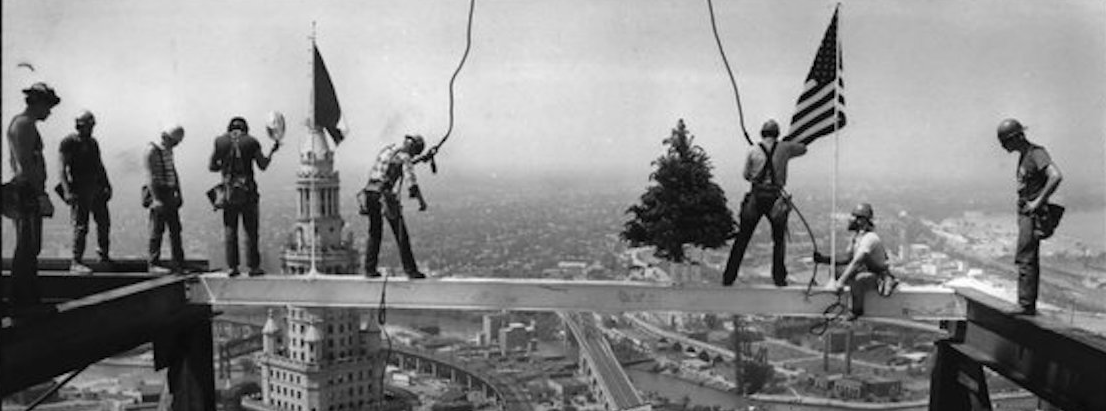The late Cuyahoga County Republican Party Chairman Bob Hughes was last of a kind: Brent Larkin
Published: Saturday, November 19, 2011, 2:25 PM
When Cuyahoga County Commissioner George Voinovich resigned to become lieutenant governor in early 1979, the usual suspects — middle-aged white guys — began jockeying to replace him.
But county Republican Party Chairman Bob Hughes had other ideas.
The Voinovich seat would be filled during a vote by Republican Party regulars. But in his 23 years as chairman, Hughes never called the roll unless he knew things would come out the way he wanted.
What Hughes wanted was to make history. He wanted Republican regulars to fill Voinovich’s seat with Virgil E. Brown, then the head of the county election board.
A former councilman from the Glenville neighborhood, Brown was a rarity — a black Republican. No black had ever held or been elected to a nonjudicial county office.
And Hughes’ recommendation wasn’t universally popular with many of the Republican guard.
“Some of the older guys thought that by picking Virgil, we’d be throwing the office away,” remembered Bob Bennett, at the time Hughes’ loyal assistant who would later serve nearly two successful decades as Ohio GOP chairman. “But Bob thought it was the right thing to do. So he took a stand.”
And he prevailed.
Brown not only won the appointment, but three times county voters validated the choice by electing Brown to full terms as commissioner.
“This whole community is indebted to Bob for his vision and willingness to take a risk,” said Virgil E. Brown Jr., the late commissioner’s son.
Hughes died 20 years ago today of accidental carbon monoxide poisoning inside the garage of his Lyndhurst home. He was 63.
And he was Cuyahoga County’s last true Republican boss, a leader in the mold of Mark Hanna and Maurice Maschke. The results speak for themselves:
On Hughes’ watch, Republican candidates won 11 elections for countywide office. Since he resigned as chairman in 1991, they’ve won one — in 1994.
When Hughes was chairman, Democrats in Cleveland held a registration advantage over Republicans of nearly 5 to 1. Nevertheless, Republican candidates won six elections for mayor — three each for Voinovich and Ralph Perk (five of those six were nonpartisan). Since then, they’ve won none.
The simplistic explanations for Hughes’ success argue that he was chairman at a time when Republicans, while still a distinct minority in the county, represented a slightly higher percentage of the electorate than today; and that the political roots of many successful GOP candidates were in the nationalities movement, not the Republican Party.
But those explanations ignore Hughes’ remarkable political instincts, his understanding of how to appeal to blue-collar independents and his single-minded dedication to winning elections.
What’s more, Hughes won elections the right way. Many of Hughes’ biggest admirers were Democrats because, as former Gov. Richard Celeste said at the time of his death, Hughes “played the game of politics the best way — hard and clean.”
Hughes’ last years as chairman were hardly his best. The party ran up debts. And loyalty prevented Hughes from seeing that his dear friend and mentor, former Gov. James A. Rhodes, was the wrong candidate to run against Celeste in the 1986 race for governor, which Celeste won in a rout.
But that barely dims his legacy.
“He was pretty much an impossible act to follow,” remembered Roger Synenberg, who succeeded Hughes. “The beauty of Bob was that he would talk to the guy on the street the same way he would talk to the president.”
But politics today is far meaner than it was 30 or 40 years ago. And Hughes, a consummate deal-maker, might not have been as successful in today’s climate.
Longtime Democratic pollster Bob Dykes, a big admirer, said “politics today is too uncivil for Bob.”
“My dad was never out to ruin people,” said Hughes’ son, Jonathan, a Columbus-based lobbyist. “Today, everybody is trying to throw their enemies in jail. I think my dad had as many Democratic friends as Republicans.”
But Rob Frost, the county’s current Republican chairman, thinks Hughes would have found a way to adapt.
“When Bob was chairman, there was not the great urban divide that we have today. But I don’t say that to make excuses. The record of Bob Hughes is the inspiration for what we need to aspire to as a party.”
That’s setting the bar pretty high — but exactly where it belongs.
